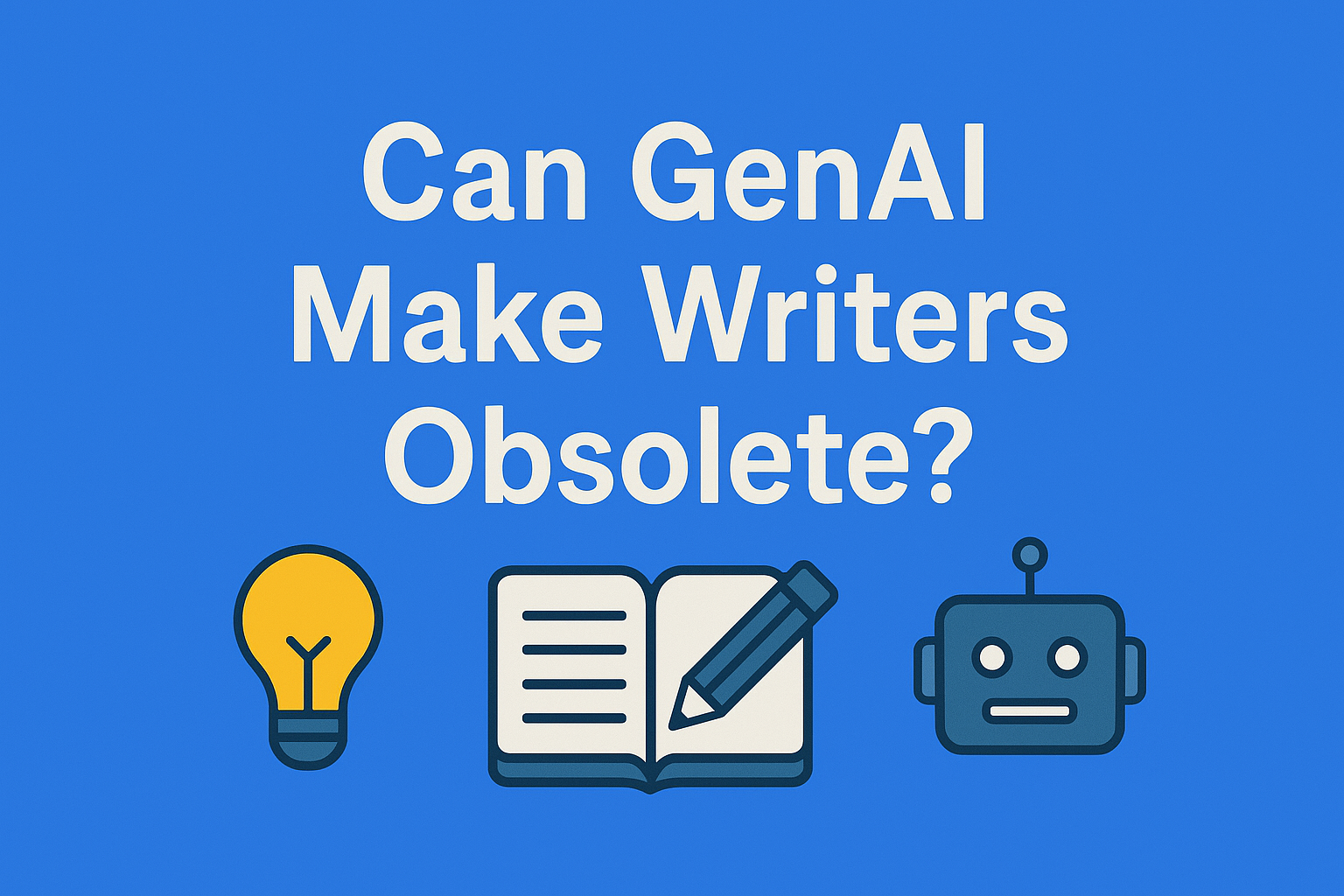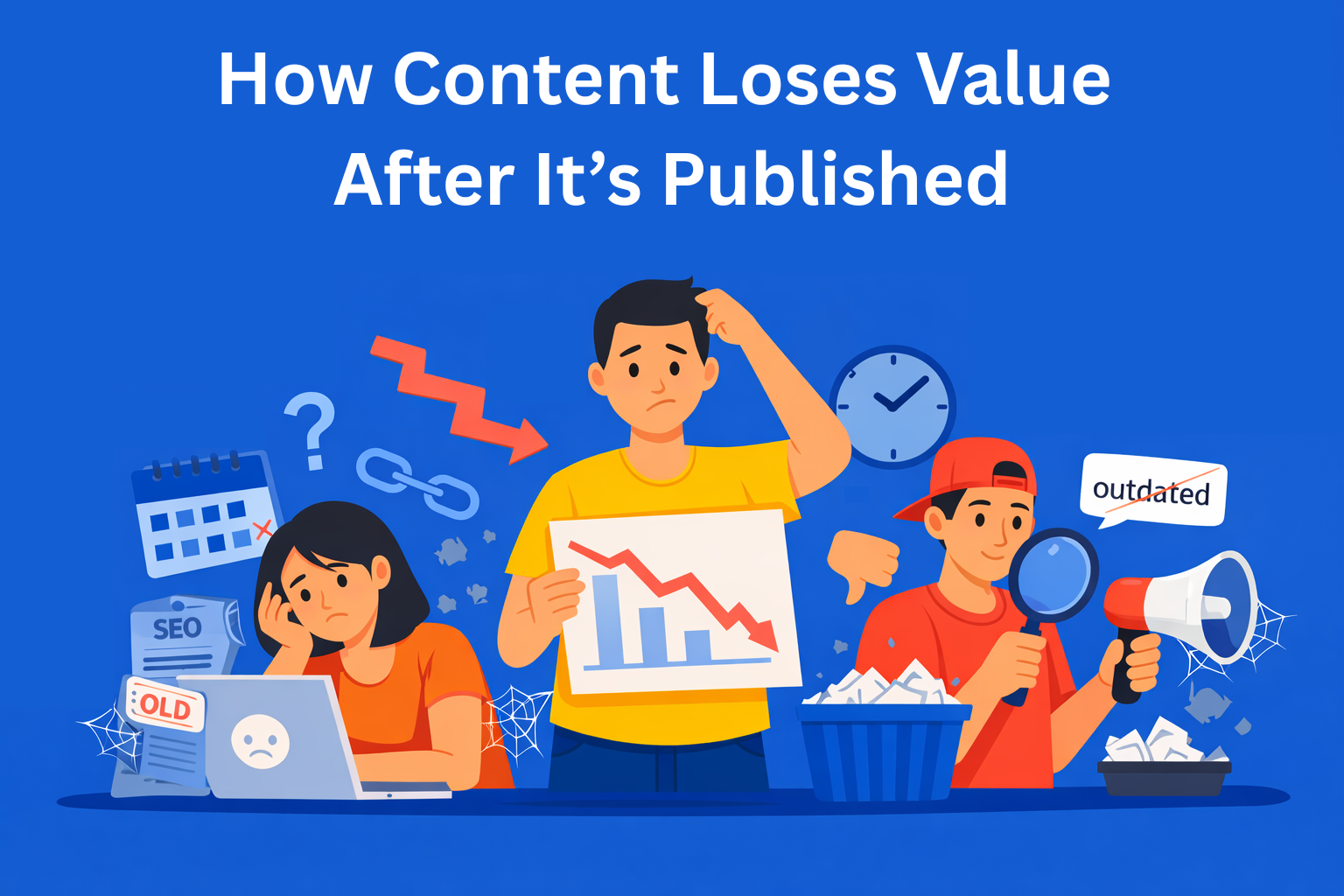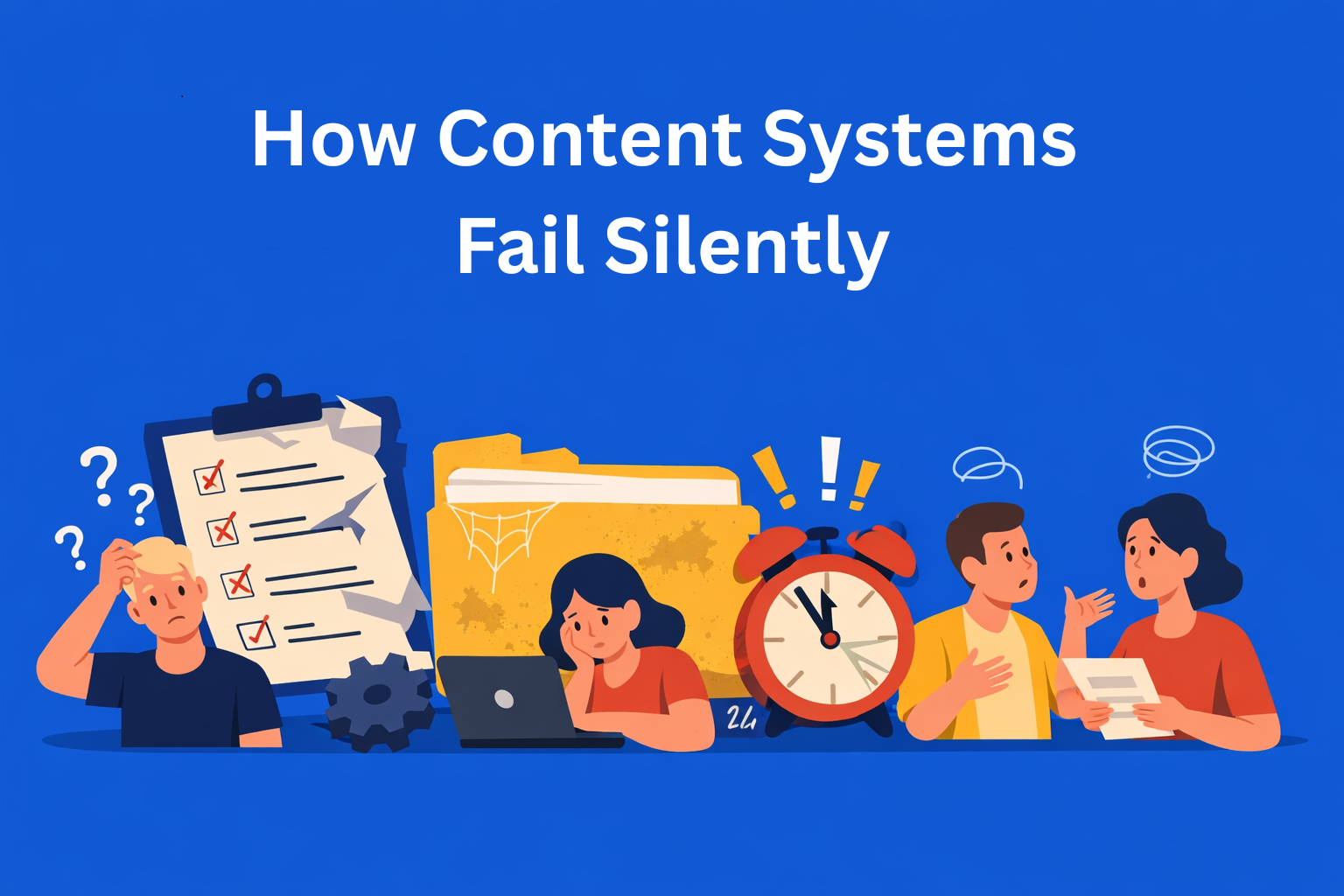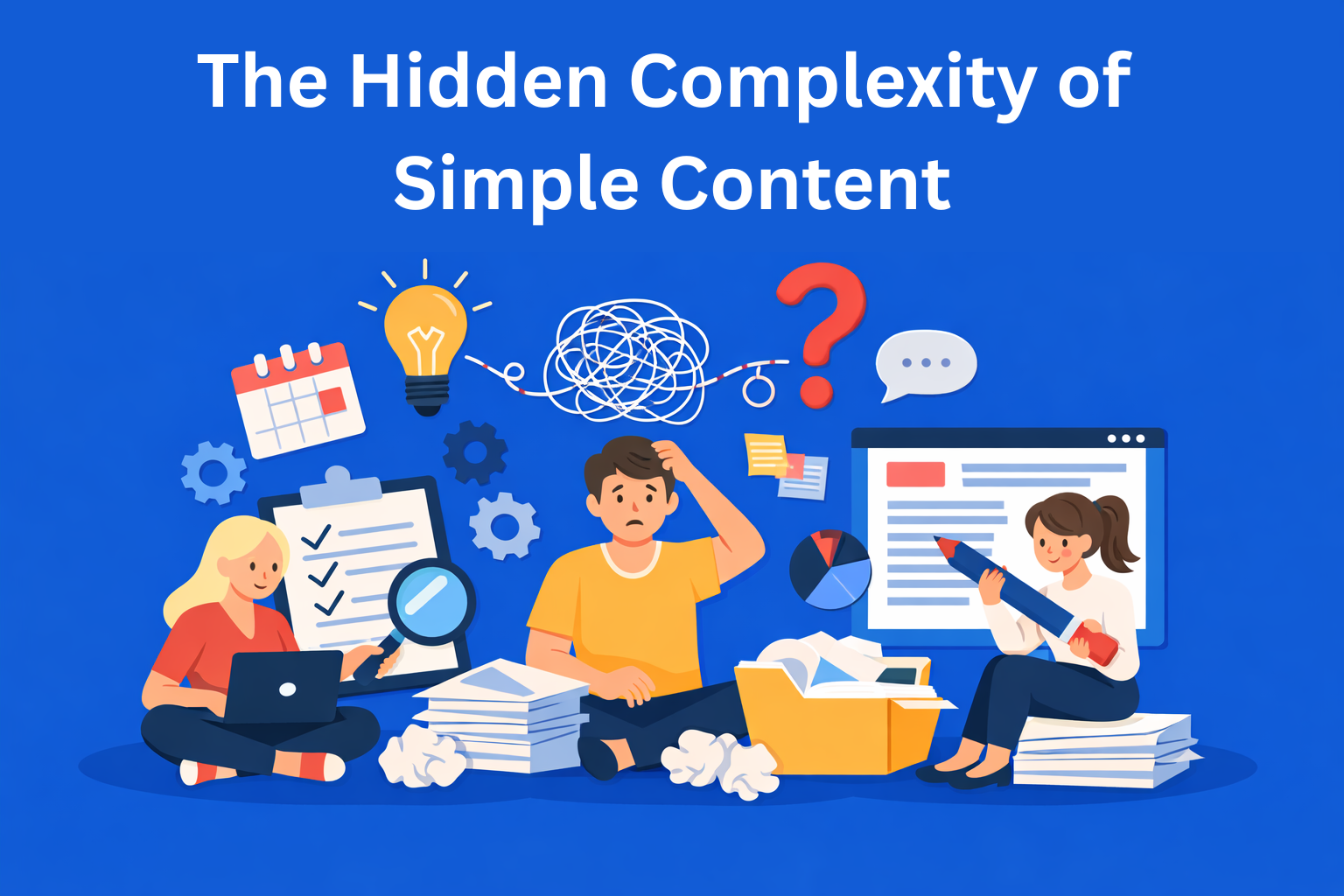Can GenAI Make Writers Obsolete?
As generative AI tools reshape content creation, many wonder: are writers becoming obsolete? This post explores where AI excels, where it falls short, and why human creativity, emotion, and critical thinking still keep writers at the heart of great content.

Generative AI used to feel like something out of science fiction, but now it’s part of everyday tools. One minute, it’s helping you brainstorm headlines; the next, it’s writing semi-decent haikus about quarterly earnings reports. Tools like ChatGPT, Claude, and Gemini are transforming how we think about content creation - and they're doing it fast. Naturally, this has raised a question that's making some writers sweat into their oat milk lattes: Will AI take my job?
Let’s unpack that, with a little help from common sense, and maybe a sprinkle of Skynet panic for dramatic effect.
Key Takeaways
- GenAI is a tool, not a replacement - It assists with content creation but lacks true understanding and creativity.
- Writers bring emotion and originality - AI can mimic tone, but it can’t replicate human experience or nuance.
- Storytelling needs a soul - Real stories come from lived emotions, not predictive models.
- AI isn't legally reliable - It may accidentally reproduce copyrighted content without attribution.
- Creativity and curiosity remain human strengths - AI doesn’t ask "why" or challenge ideas the way writers do.
- Content homogenization is a real risk - Relying too much on GenAI can make content repetitive and bland.
- Authenticity builds trust - Readers respond to real voices, not synthetic ones.
- AI thrives with human guidance - It excels when used for ideation, drafting, and scaling under human supervision.
- The future is collaboration - Writers who embrace AI as a tool will be more powerful, not obsolete.
The Allure of the Robot Writer
There’s something special about the promise of instant content. Just type a prompt and out pops a full article, a product description, or an email campaign. Businesses see dollar signs. Marketers see time saved. Writers see… well, their career flashing before their eyes.
But here’s the thing: while GenAI is great at mimicking tone, filling templates, and producing first drafts that sound like a human, it’s not thinking. It’s predicting. Every word it writes is based on probability, not intention. That may be enough for surface-level work, but once you dig deeper, the limitations show.
No Soul, No Story
One of the most obvious shortcomings of GenAI is its inability to tell stories with soul. People don't just write, we bleed into our work. We draw from experience, culture, nuance, trauma, joy, and even oddly specific coffee shop interactions. AI? It draws from the internet. And trust me, the internet can be a weird place.
Try asking a GenAI to describe the feeling of loss, the chaos of a breakup, or the joy of holding your kid for the first time. You’ll probably get the good old "As an AI language model, I cannot...". Our capability to feel matters, especially in content that needs to resonate on a human level.
Not Great at New Ideas (Or Legally Safe Ones)
Another major issue: AI doesn’t come up with original thoughts. It’s a remix artist, not a composer. That means you can’t rely on it for truly innovative messaging or hot takes that haven’t already been said elsewhere. Want to lead an industry conversation or say something bold? You’ll need a person for that.
And let’s not forget copyright. AI can “accidentally” reproduce protected material without attribution. Your blog post might quote someone else's work. That’s a lawsuit waiting to happen, not a scalable content solution.
Emotional Intelligence: Not in the Code
Humans write for humans, not algorithms. We know when to be subtle, when to make a joke, when to shift tone, and when to just stop talking. GenAI doesn’t have that radar. It doesn’t know when your audience is grieving, frustrated, or excited. It doesn’t understand context beyond the characters in a prompt.
Writers are often tasked with reading the emotional room. You need to know what tone to use based on what you're writing at the moment, and AI will never be able to do that (or will it? 🤖).
Data In, Garbage Out
One of the more ironic flaws of GenAI is that it’s only as good as the content it was trained on. The internet, as we know, is not always a bastion of truth. If you feed it biased, outdated, or flat-out wrong data, it’ll regurgitate that with confidence.
This makes it risky for industries like health, finance, or anything remotely regulated. Writers don’t just write, they fact-check, they cite sources, and they don’t casually invent statistics unless they’re writing satire (looking at you, The Onion). AI, meanwhile, will throw in a footnote to a source that doesn’t even exist.
The Infinite Loop of Sameness
Another less obvious limitation? Homogenization. As more teams lean on GenAI for bulk content, we risk drowning the internet in slightly different versions of the same blog post. Everyone’s “10 Ways to Improve Your SEO” starts to sound eerily similar. (Spoiler: it's because the AI used the same 50 blogs for reference.)
Originality becomes the real differentiator. The brands and voices that stand out won’t be the ones churning out polished AI content at scale—they’ll be the ones with real perspective, wit, and guts.
AI Can’t Ask Why
Perhaps the most human thing about writing is curiosity. We ask why something matters. We push back. We challenge assumptions. Writers question briefs, interview sources, and rethink angles. They chase ideas down rabbit holes and often come back with a stronger piece because of it.
GenAI doesn’t do that. It doesn't ask why, it only answers. And often, those answers are based on the consensus of the web, not the truth, and certainly not what makes your brand unique.
The Trust Factor
People trust people. It’s that simple. A founder’s letter written by the founder carries weight. A product review penned by a real customer hits harder. Even ghostwritten content tends to have a human heartbeat behind it.
AI can replicate tone, sure, but it can't build trust. It can’t go off-script. It can’t speak from lived experience. As a result, it struggles with authenticity, the very thing audiences crave in a world saturated with content.
The Terminator Won’t Be Writing Your Newsletter
Let’s just admit it: the panic is a little overblown. The idea that AI will completely replace writers is kind of like worrying your toaster will take over your kitchen. Sure, it’s useful, but it’s not planning your meals. GenAI is a tool, a very powerful, sometimes creepy tool, but it’s still a tool.
And honestly, if a robot ever does decide to replace your content team, we’ll have bigger problems than blog posts. (See: Skynet, Judgment Day, etc.)
Where GenAI Does Help
To be fair, AI is amazing at certain tasks: generating ideas, summarizing long content, repurposing existing assets, doing basic research, and filling out templates. It's great for repurposing content across platforms, especially when human-reviewed.
It’s also incredibly helpful for eliminating blank-page syndrome, which every writer has faced at some point. But it needs direction. Structure. Supervision. In short, it needs you.
So, What’s the Future?
The future isn’t AI vs. writers, it’s AI used by writers, with clarity around its limits. Great content will still come from people who understand context, nuance, and the strange, beautiful messiness of human thought.
Content leaders should see GenAI as a lead magnet, not a replacement. It can help draw people in, streamline workflows, and scale low-lift content, but the beating heart of your brand still needs to be human.
So, no writers aren’t obsolete. They're just upgrading their toolbox. The pen is still mightier than the algorithm... even if the algorithm can spell-check faster.






